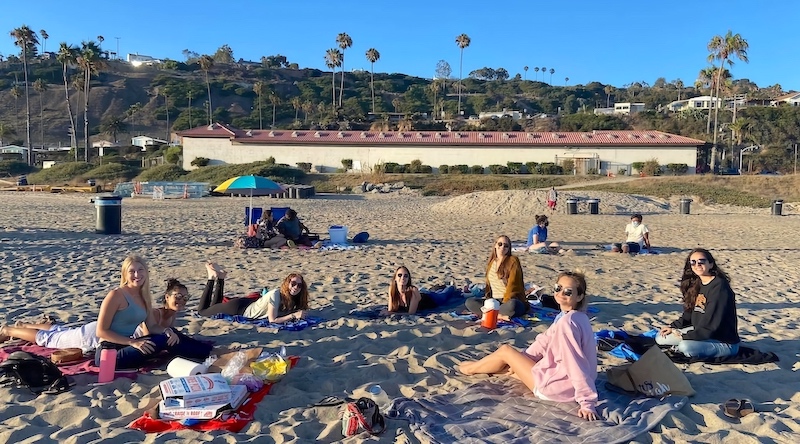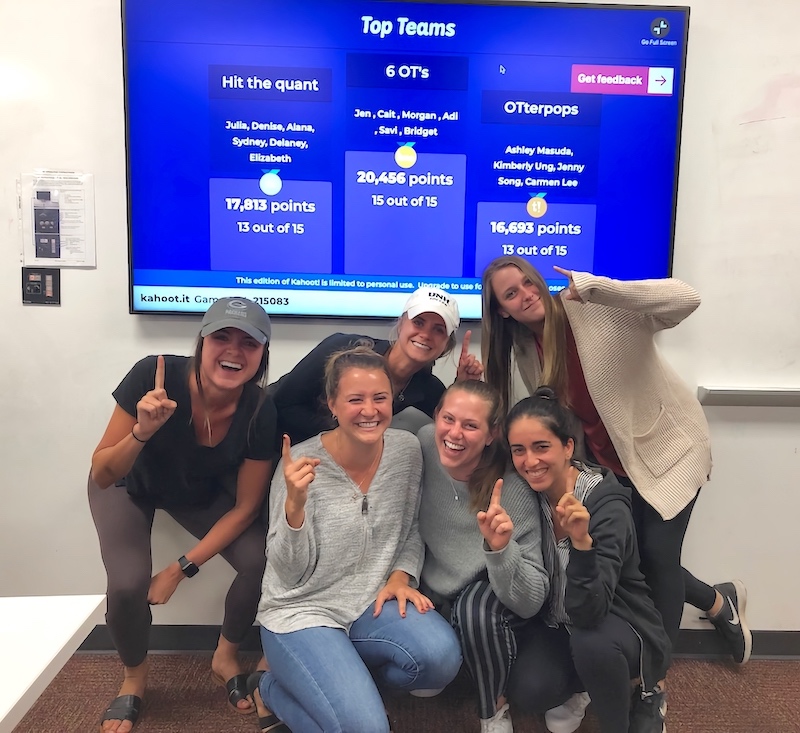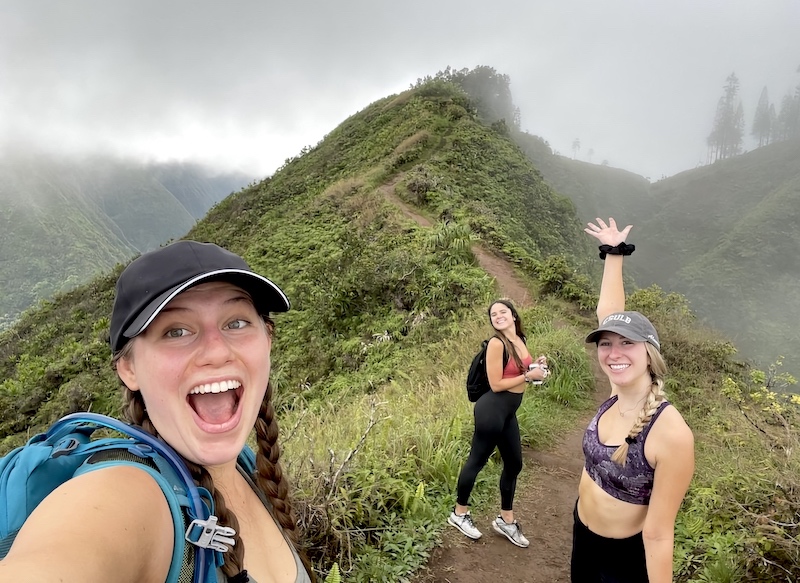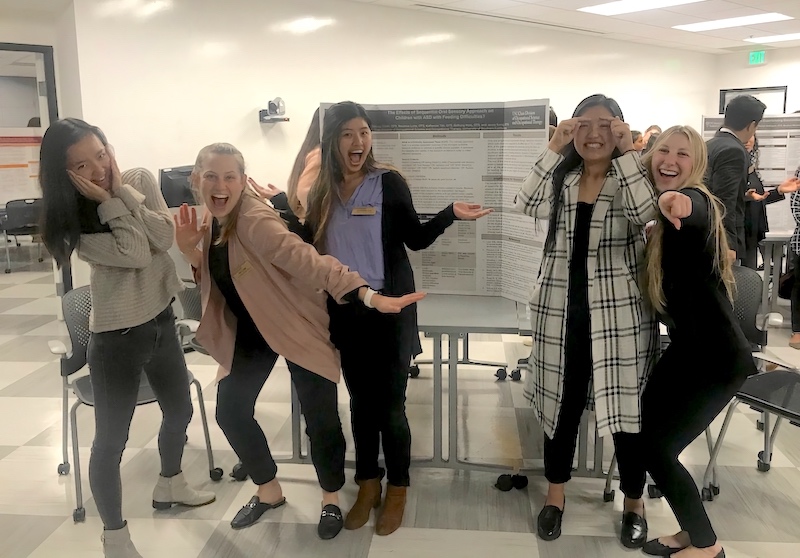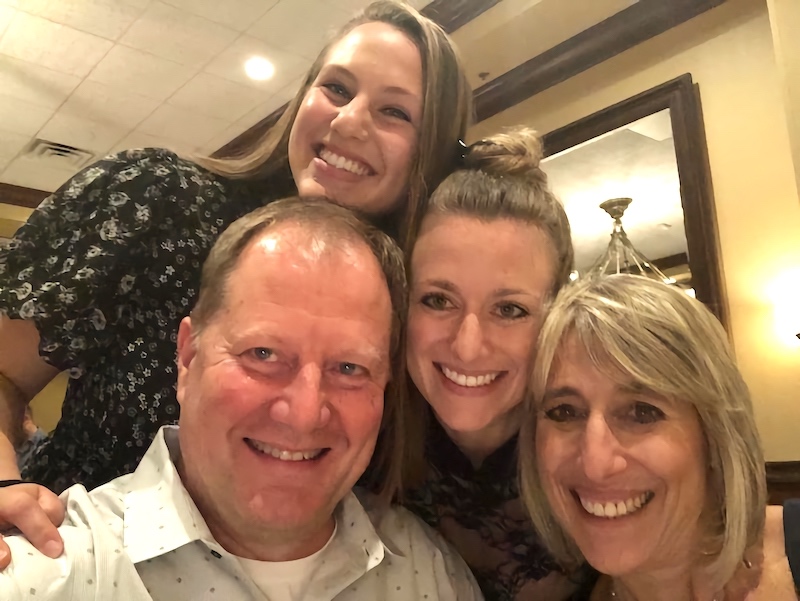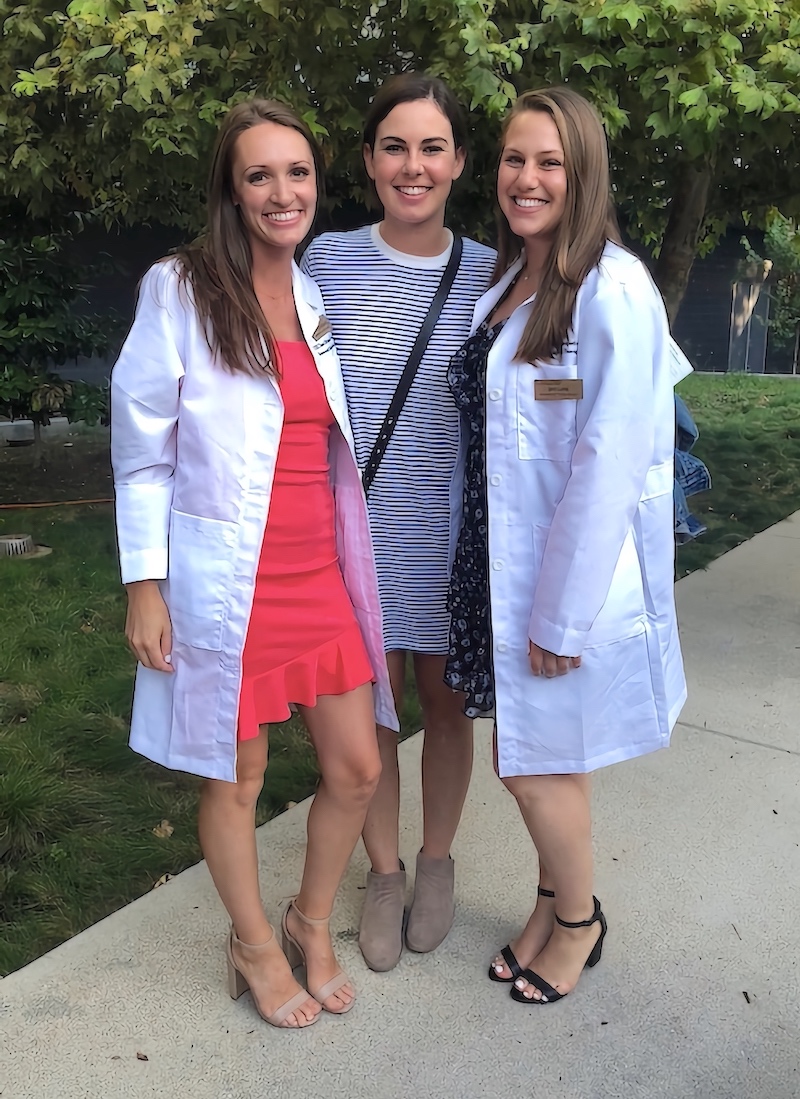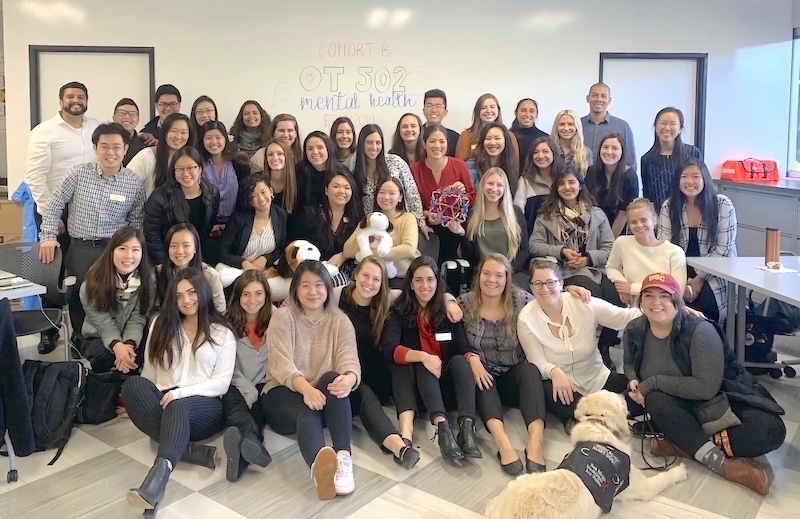Student Blog
Life Hacks
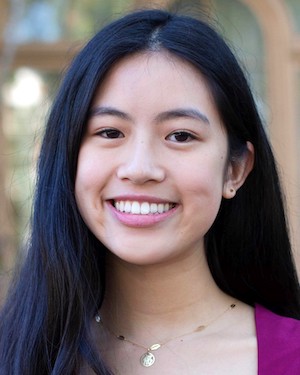
What I wish I knew before taking the “Foundations” courses: Part 2 ⟩
June 24, 2021, by Arianna
Classes Life Hacks
Hello again! Here is the second part of my last blog. I hope this mini-series gives the Entry-Level MA students some study tips for their next exam. In this blog, I will talk about Neuroscience and Creativity, Craft and Activity Analysis!
Foundations: Neuroscience:
Neuroscience was slightly easier than Kinesiology for me because I have a pretty decent background in Psychology and Cognitive Science. However, we did cover a LOT of information in this class. Nonetheless, Dr. Persson is such a lovely professor to be around so I’m sure you will have a great time learning about the nervous system!
- Tip #1: Make a study guide ASAP.
Eventually, Dr. Persson will post a study guide for each unit. I suggest downloading that study guide and filling it out as you cover the content in class. This will save you a LOT of time when you are studying, and it will help you focus your attention on the important information. But please don’t disregard the information that is not on the study guide. Everything you learn in this class will come up in your life whether it be on the exam, or with a future client. As my Physiology professor once said, “If you don’t want to study for your own benefit, study for the benefit of your future patients”.
- Tip #2: Watch YouTube videos about each topic.
Some of the concepts you learn about in this class are hard to understand without the assistance of videos. For example, I watched the same video of neural tube formation probably 6-8 times before I was confident enough to move on. (Here’s the
link if you were interested.)
Actually, I think I’ll just link all of my go-to videos!
In my opinion, these topics are difficult to learn about on paper, so I recommend watching some videos to help you gain a more comprehensive understanding of each concept.
- Tip #3: Study with real-life examples.
You will be learning about many different conditions and disabilities in this class and it can be hard to keep track of each individual disability. I guess this tip is pretty similar to the last tip but I suggest looking up “Living with ______” when you are studying disabilities. Hearing the story from a real person and watching how the disability affects their daily life is a lot more memorable than reading bullet points off a slide.
Foundations: Creativity, Craft and Activity Analysis
I can’t lie, this class was the most fun out of the 4 Foundations courses. However, I might be a little biased because Crafts was the only class I had in person. Towards the end of the semester, we started having in person Crafts a few times a month which made this class stand out from the others. In my opinion, this class is not stressful. In fact, it is the exact opposite! Being able to relax and create things with my hands for three hours once a week allowed me to unwind and forget my worries. Therefore, I don’t have many study tips, but I do have some advice!
- Tip #1: Fully immerse yourself in the activity.
When I first started this class, I had a hard time letting myself relax and enjoy the moment when we were crafting. As you all probably know, being a full time student can be overwhelming. I did not want to allow myself to relax because I felt guilty for not studying. Although you may feel this way at times, please enjoy yourself and have fun with this unique opportunity to make art in class! During this course, I decided I would put my entire heart into it because I wanted to find a new favorite occupation. I eventually realized how happy I was when I crafted, and decided to pick up nail art as a hobby.
- Tip #2: Get a head start on your final essay.
I would get a head start on your final essay if possible. When I was in the class, Dr. Dieterle posted the prompt for the final essay a few weeks before it was due. I ended up writing it that weekend because I had 2 other finals on the same day the final essay was due! Hopefully none of you have 3 finals on one day, but you will be thanking yourself for getting a headstart on your work when exams start to pile up.
- Tip #3 Take notes during guest speaker presentations.
This might be obvious but you should take lots of notes during the guest speaker presentations! I’m not sure if you have to write Guest Speaker Reflections, but if you do, it will be helpful to take ample notes during the presentation so you have plenty of topics to write about in your reflection. As a bonus, these notes might be a source of inspiration for you in your future career!
That was my last tip for the blog. I hope you enjoyed this mini-series and found this advice helpful. If you have any questions, feel free to reach out to me at .(JavaScript must be enabled to view this email address).
Thank you for tuning in!
⋯

What I wish I knew before taking the “Foundations” courses: Part 1 ⟩
June 18, 2021, by Arianna
Classes Life Hacks
Throughout my Junior year, I took the four “Foundations” for occupational therapy courses: Occupation, Kinesiology, Neuroscience, and Creativity, Craft and Activity Analysis. These were some of my favorite classes because I got to know my future professors, I spent more time with the 12 students in my cohort, and I learned material that will support me in my future career as an OT.
By the time this blog is up, the Entry-Level MA students will be finishing their first week of classes, and as some of you may know, they are taking the same four Foundations courses that the BS-MA students took this past year! So, fellow future classmates, this blog is for you 😊 . I’ll be writing tips and advice for each class so keep reading if you want some pointers!
Disclaimer: I’m not sure if the structure of the summer classes is the same as the classes I took. Hopefully it is but if not, I hope you can still gain something helpful from this blog!
Foundations: Kinesiology
In my opinion, Kinesiology was the most challenging Foundations course BUT at the same time it was the class I gained the most from. If you loved anatomy, I think you will enjoy this class as well!
- Tip #1: Use the “Complete Anatomy” app to study
If you don’t have this app already, sign into your USC email and click this link: https://libguides.usc.edu/c.php?g=293713&p=1956412. It will give you access to a FREE lifetime membership to Complete Anatomy! This app is great because it allows you to isolate each muscle and watch them in motion. Seeing how the muscles shortened and lengthened really helped me form a better understanding of the function of each muscle, which in turn helped me memorize the prime actions!
- Tip #2: Get up and move during the test!
Although a normal professor would not appreciate their students standing up and moving around during an exam, Dr. Sopkin encouraged the exact opposite! During the tests, it was SO helpful to act out the different actions of each muscle with my own body. For example, if I couldn’t remember the actions of my anterior deltoid, I would just swing my arm around and note which movements required the use of that muscle. I believe your professor is Dr. Rafeedie this summer, but I think she will also encourage you to do the same.
- Tip# 3: Make empty muscle charts
Pretty soon, all of you will be very familiar with the term “muscle charts”. Once you get these charts, I recommend organizing them by unit, and making a blank version of each chart in Google Docs. When it’s time to study for the exam, pull out your empty muscle charts and fill them in until you can do it from memory. Although the amount of content you need to memorize seems intimidating, if you start memorizing the muscle charts as soon as you get them, you will do just fine.
- Tip # 4: Create acronyms for force couples
Sooner or later, you will learn about force couples, and these can be hard to remember at times, especially when there are multiple in each unit. Acronyms always make memorizing easier for me. Here’s one acronym I made that I remember off the top of my head: SLT (Some Lettuce and Tomatoes). S=Subscapularis, L=Latissimus dorsi, T=Teres major. Together, these muscles aDduct the shoulder. How I remembered this force couple was: AD(d) Some Lettuce and Tomatoes. Lol.
Foundations: Occupation
For everyone who loves history, this class might be your favorite! Being completely honest, this class wasn’t as stressful as Kines. It is largely discussion based, and I was a history nerd in high school so this class was right up my alley.
- Tip #1: Start making a “timeline”
I apologize in advance if you do not have to make a timeline at the end of the summer, but I would start taking notes on 1-2 important figures in each chapter and 1-2 important events. These are facts that you should be writing down regardless, but taking these notes may just help you get a head start on your final project.
- Tip #2: Use the app “Speechify”
If you watched my Instagram takeover a while back, you probably heard me talk about the text-to-speech app, “Speechify”! When I was in Foundations: Occupations, we had a lot of heavy reading. I can’t lie, long and dense readings take me forever to complete because I somehow always manage to read without processing anything. As a result, I have to go back and read the same sentence over and over again until I can comprehend it. When I discovered Speechify, I was able to get through the reedings a lot faster! I am an auditory learner, so listening to the readings made it much easier for me to stay focused.
This blog is getting long so I’ll have to make 2 parts! Come back next Friday for more tips; I’ll be talking about Neuroscience and Creativity, Craft and Activity Analysis!
⋯

Can’t Sleep? Count Sheep! ⟩
June 4, 2021, by Arianna
Life Hacks
Although Mental Health Awareness month is over, I wanted to write about something I struggle with that many of you may experience as well: sleeplessness. Don’t get me wrong; I love sleeping. I love having vivid and nonsensical dreams that linger in my mind all day, and I love being able to rest and recuperate with an occupation as restorative as sleep. The one thing I don’t love is the “simple” process of falling asleep.
My typical night goes as follows: I get into bed, lay on my side curled up in a fetal position, close my eyes, and think about the day. Pretty soon, I start to think about some embarrassing thing I did in high school. Then, I think about grad-school, and worry about how I’m supposed to pay for that. Next, I think about having to wake up before seven in the morning to commute to classes if I decide to live at home in 2022. Before you know it, my heart is racing, my blood pressure is up, and my entire sympathetic nervous system is ready for action! This can go on for thirty minutes to an hour.
Once my brain is too tired to think, my body takes over. I suddenly have the urge to pee, but when I walk to the bathroom, the urge disappears. Pretty soon, I can feel every fold and wrinkle in my pajamas, and the idea of sleeping in lumpy clothing forces me to get up and reposition myself. Next, I can see a tiny beam of light peeking through the blinds, which of course, bothers me. And last but not least, my baby hairs start to tickle my face. AGHHH!!! By now, I’ve been in bed for two hours, and I have to be up in six.
Now I forget about my body and I am only filled with frustration, for I have just wasted 2 hours of sleep! This sequence of events used to happen every single night, but I’ve picked up a few tricks to help me overcome my sleeplessness.
1. Melatonin tablets
Over the past year, my best friend has become melatonin tablets! Taking 10 mg of melatonin an hour before bedtime helps me feel sleepy. Melatonin has also helped me establish a more regular sleep cycle! Oh, but I do NOT recommend getting the “Natrol Strawberry Melatonin Gummies” because they taste better than most candies, which is dangerous if you have a sweet-tooth like me.
2. No phone in bed!!!
Oh boy, I wish I had the willpower to do this every night. Sometimes when I feel extra motivated to get a good night’s sleep, I charge my phone on my dresser to prevent me from using it in bed. Although the eternal scrolling can be comforting by helping me take my mind off of external stressors, it prevents me from winding down effectively.
3. Mental exercises
I’m not sure if this is considered an exercise, but when my thoughts are overwhelming, I repeat this phrase in my head over and over: “What are you thinking about? Nothing. What are you thinking about? Nothing”. Sometimes I actually fall asleep doing this! I also find counting sheep to be helpful. Although it seems silly, sometimes if I imagine velvet sheep walking across a velvet couch in a velvet room, I become extra relaxed.
4. Deep breaths
Last but not least, never underestimate the power of three deep breaths. Slowly breathing in air, holding it, and exhaling, noticeably slows down my racing heart. I need to remember to practice mindful breathing more often, as it proves time and time again to be beneficial.
These tips have all helped me get better sleep, but of course they don’t work perfectly. Some nights, my brain refuses to sleep no matter how hard I try, and I just have to accept that. If you struggle with sleeplessness, I hope this blog was relatable and comforting. I also hope you were able to gain useful tips to help you get a better night’s rest! We must never forget that sleep is an occupation that everyone deserves to partake in.
⋯
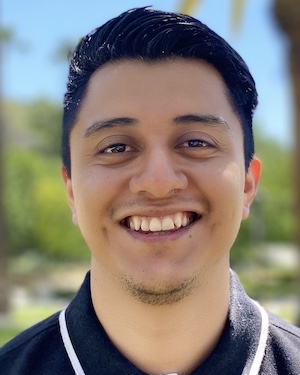
A Week in the Life: OTD Residency Edition ⟩
April 30, 2021, by Daniel
Classes Fieldwork Life Hacks Videos
As I prepare to go into the last semester of my OTD Residency, I wanted to share with you all what a typical week looks like for me. Completing my residency at the LAC+USC Primary Care Adult West Clinic has been one of the most rewarding experiences I’ve had as a student, and now licensed occupational therapist.
I hope you find this vlog helpful and enjoy it!!!
If you have any questions, feel free to reach out to me at .(JavaScript must be enabled to view this email address) or .(JavaScript must be enabled to view this email address).
⋯

Finding your A-teams ⟩
April 23, 2021, by Savi
Classes Getting Involved Life Hacks
When you get to graduate school, you will quickly realize that you cannot succeed alone. You will gravitate towards and lean on all types of people throughout your two years and you will form long-lasting friendships. As graduation soon approaches, I have had to face the fact that I will no longer be blessed with the opportunity to work with all these wonderful people on a daily basis. I have formed a variety of different teams depending on the class, club, job, or activity I’m in and I wanted to thank all the people who have helped me succeed as a student, friend, classmate, and practitioner. Below I have included some pictures of my various teams. This is most definitely NOT a comprehensive list, because there are so many more wonderful people who have helped me along the way that are not pictured below. To those who are not pictured . . . you know who you are . . . I appreciate you all!
- To those who got me through my first summer semester: I truly do not know how I would have made it through without ya’ll. Whether you were a friendly face to me on the first day (shout out to Lamoni for being the kindest to me when we were seated next to each other on the first day of class), a late-night study partner in Currie Hall, or a lab partner who tolerated me asking too many questions and talking everything out loud, you made the transition into graduate school a little less stressful.
- To the MANY group project teams: Thank you for helping me expand my creativity. Time and time again I found myself researching topics I would have never come up with on my own. Whether that was focusing on the effectiveness of the sequential oral sensory approach with children who are diagnosed with Autism Spectrum Disorder in OT 518 Quantitative Reasoning, or developing a wellness program for undergraduate college students in OT 537 Occupation for Community, I got the opportunity to surround myself by people with varying interests and skillsets which allowed me to grow as a practitioner.
- My cohort: Shoutout to cohort B for being the best cohort I could EVER ask for. Your knowledge about and passion for OT inspired me daily and I couldn’t have asked for a better group of people to hang out with all day every day.
- My roommates: These people have seen it all! Shoutout to these gals for dealing with me at my best and my worst, for always being a shoulder to lean on, and for listening to all my crazy rants. I appreciate you both for making the little parts of life fun, for being my “OT practice patients” during this pandemic, and for supporting me always. I couldn’t have done these two years without you!
- To my ambassador team: You all are my rocks. Thank you for having faith in my capabilities, for always stepping up to the plate, and for helping me out when you can see that I am stressed. You all always know the right thing to do and say, and it has been an honor working with and learning from all of you.
- To the adventure buddies: Thank you for taking my mind off the craziness that is graduate school and helping me re-focus on my energy on meaningful occupations. You are the silent heroes in my life. Thank you for supporting me both inside and outside of the classroom. You are able to read me like a book by this point and understand when I need to take a break and just enjoy the outdoors. You are the ones to text me a funny joke when you know I am having a hard workday or to organize an event when it is time to celebrate even the smallest success. Thank you for pushing me outside of my comfort zone, surrounding me with love and celebration, and for being there through the tough times.
- To my family . . . my lifelong team: There are not enough thank you’s to show how grateful I am for you three. To my sister, life mentor, and OT guide, I do not know where I would be without your wisdom and guidance. You always know the right thing to say and do and I will forever be thankful for you. Mom and Dad – you are my biggest support system. Without out you none of this success would have been possible. You are my biggest cheerleaders and I know that you two are what motivate me to push harder every day.
My friends and I winning a fun and friendly competition in preparation for a quantitative reasoning exam.
My quantitative reasoning team posing in front of our poster on the effectiveness of the sequential oral sensory approach.
⋯






